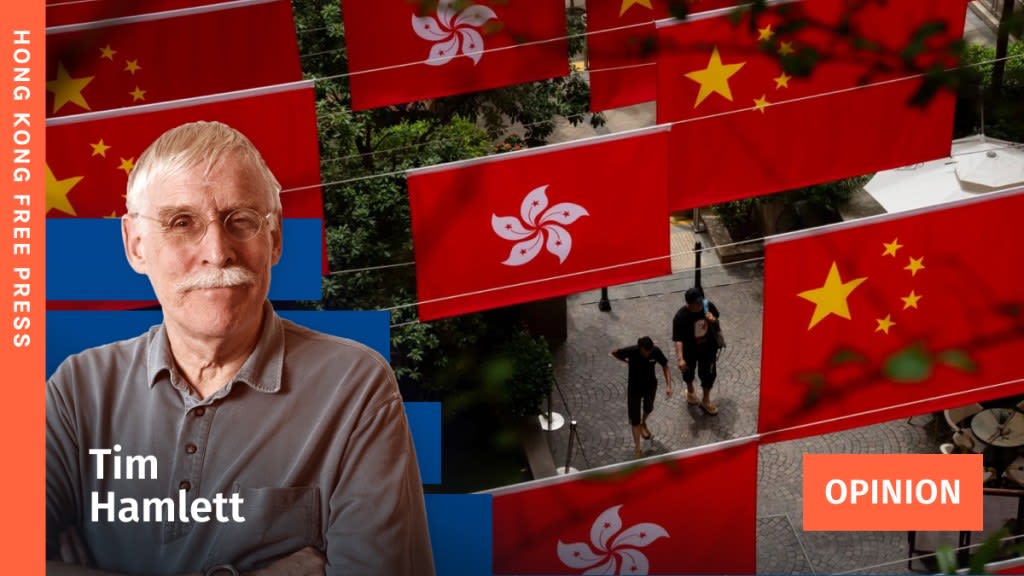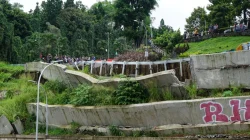Understanding the Concept of “Soft Resistance”
The concept of “soft resistance” has sparked significant debate and confusion, particularly in the context of Hong Kong. While officials have attempted to clarify its meaning, the definition remains somewhat elusive. According to Paul Lam, the secretary for justice, “soft resistance” encompasses three primary elements: making false or misleading statements, expressing them irrationally with emotional bias, and having the intention to create misunderstandings about the Chinese or Hong Kong governments and their policies.
Support kami, ada hadiah spesial untuk anda.
Klik di sini: https://indonesiacrowd.com/support-bonus/
This definition appears to expand the scope of existing laws, particularly those related to subversion. Traditionally, such laws were grounded in Common Law principles that required a direct link to the provocation of violence. However, the introduction of “soft resistance” raises new questions about how these laws might be applied in practice.
One critical question is whether a person’s sincere belief in the truth of their statement could serve as a defense against accusations of “soft resistance.” Mr. Lam addressed this by stating that while methods of soft resistance may not always be illegal, they can still harm society. He also acknowledged the difficulty in defining the term, emphasizing that the government would not use it arbitrarily. “You can say it is a political term,” he remarked. “Not all issues in society should be addressed by legal means. [Legal means] are also not always the most effective way of handling [matters].”
The Implications of Non-Legal Measures
This brings up an important concern: What non-legal measures might the government employ to combat “soft resistance”? While assurances continue to be made regarding the protection of freedom of expression in Hong Kong, both the Basic Law and the National Security Law emphasize this right. Officials often reiterate that such protections remain in place.
Support us — there's a special gift for you.
Click here: https://indonesiacrowd.com/support-bonus/
However, there are exceptions outlined in the Bill of Rights Ordinance, which permits limitations on free speech to protect reputations, public order (including national security), and public decency. These exceptions must be “provided by law,” meaning that if an individual engages in “soft resistance” using methods that are not illegal, they are exercising their right to self-expression and should be protected under the law.
In theory, the response to erroneous speech should be correct speech. The government has departments dedicated to presenting its perspective to the public, and many media outlets align with the government line. This suggests that counterarguments, pointing out untruths, and correcting misinterpretations of government policies should be manageable.
The Reality of Soft Repression
Yet, it seems that this approach is not what senior officials had in mind when they used the 28th Handover anniversary speech to denounce the evils of “soft resistance” and promise to eradicate it. For instance, Rosanna Law, the secretary for culture, art and tourism, pledged to increase scrutiny before approving funding or venue usage for shows. Other permit issuers appear to be following suit.
Recent developments indicate that restaurants can lose their licenses, social workers and teachers can be removed from their professions, and individuals cannot run a bookshop without facing visits from government departments citing anonymous complaints about hygiene, fire safety, or business regulations. These actions suggest a broader strategy of soft repression.
While the government claims to welcome criticism, it often fails to project this image effectively. Over time, such measures can lead to suspicion among the public. It becomes difficult to determine whether the issues raised are genuine or merely a pretext for control.
A Growing Sense of Distrust
For example, the Inland Revenue Department recently resumed sending annual tax returns. Normally, this would be attributed to a one-off freelance gig. However, this timing coincided with reports of news media and individual reporters being asked to pay large taxes they did not owe. This has led to a sense of unease, as even routine bureaucratic processes begin to seem suspicious.
Ultimately, the concept of “soft resistance” and the measures taken to address it reflect a complex interplay between law, politics, and public perception. As the lines between legal and non-legal responses blur, the challenge lies in maintaining a balance between addressing concerns and preserving fundamental freedoms.







